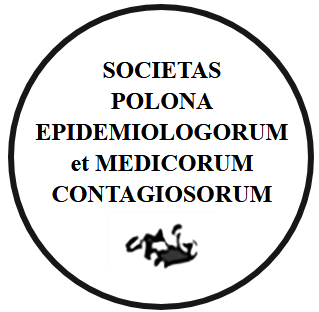ABSTRACT
OBJECTIVE. The aim of this paper is is to present the assumptions of the Value Based Healthcare concept, the related benefits and examples of countries in which the concept is implemented. The article also proposes solutions based on the VBHC model that could be implemented in the Polish healthcare system.
MATERIALS AND METHODS. A literature search was conducted using the PubMed via Ovid database using the following keywords: Gray literature items were also analyzed using the Google Scholar tool and other documents, eg of the European Commission. Then the work was divided into the following thematic areas: definitions and principles of VBHC, benefits and challenges related to the implementation of the model, VBHC in Europe, recommendations for solutions in Poland based on VBHC. Value Based Healthcare (VBHC) is a healthcare financing model developed by M. Porter and E. Teisberg. It is based on the assumptions of financing healthcare providers based on treatment outcomes, that is, values. This concept was created in connection with the constantly growing costs in the American healthcare system, which, however, did not translate into health indicators in the population. The aim of VBHC is to minimize the cost of the system while achieving the best result for the patient. In this model of healthcare organization, it is assumed that those healthcare providers who provide the best quality care should be best financed, thus contributing to cure or significantly improving the quality of life of patients.
CONCLUSIONS. Value Based Healthcare is the recommended method of financing due to the optimization of healthcare expenses while maintaining the appropriate quality of services provided to patients. Currently, many countries in Europe and around the world have started implementing this system solution. However, the transition from a service charge to value for money model is a complex process. In the authors’ opinion, the longterm benefits of such a financing model bring a significant improvement in the quality of services and patient satisfaction.
STRESZCZENIE
CEL PRACY. Celem pracy jest prezentacja założeń koncepcji Value Based Healthcare, związanych z tym korzyści oraz przedstawienie przykładów krajów, w których koncepcja ta jest wdrażana. W artykule zaproponowano także rozwiązania w oparciu o model VBHC, które mogłyby zostać zaimplementowane w polskim systemie ochrony zdrowia.
MATERIAŁ I METODY. Przeprowadzono przegląd piśmiennictwa za pomocą bazy PubMed via Ovid z zastosowaniem następujących słów kluczowych „healthcare”, „value-based healthcare”, „cost”, „economy”, „policy”. Zastosowano następującą strategię: ((value-based healthcare) AND (cost)) AND (value-based healthcare[MeSH Terms])) AND (cost[MeSH Terms])) AND (quality)) AND (value)) AND (economy)) AND (economy)) AND (policy)) AND (policy[MeSH Terms]). Uzyskano 72 wyniki. Z tego po analizie abstraktów zakwalifikowano 18 pozycji. Przeanalizowano również pozycje z szarej literatury za pomocą narzędzia Google Scholar oraz inne dokumenty np. Komisji Europejskiej z uwzględnieniem aktualnie dostępnych danych dla Polski i innych krajów. Następnie pracę podzielono na następujące obszary tematyczne: definicje i zasady VBHC, korzyści i wyzwania związane z wdrożeniem modelu, VBHC w Europie, rekomendacje dla rozwiązań w Polsce w oparciu o VBHC.
WYNIKI. Opieka zdrowotna oparta o wartości (ang. Value Based Healthcare, VBHC) to model finansowania opieki zdrowotnej stworzony przez M. Portera i E. Teisberg. Opiera się na założeniach finansowania świadczeniodawców w oparciu o wyniki leczenia, czyli wartości. Koncepcja ta została stworzona w związku ze stale rosnącymi kosztami w amerykańskim systemie ochrony zdrowia, które nie przekładały się jednak na wskaźniki zdrowotne w populacji. Założeniem VBHC jest minimalizacja kosztów systemu przy uzyskaniu najlepszego wyniku dla pacjenta. W tym modelu organizacji ochrony zdrowia, z założenia najlepiej finansowani powinni być ci świadczeniodawcy, którzy dostarczają opieki najlepszej jakości, tym samym przyczyniając się do wyleczenia bądź znacznej poprawy jakości życia pacjentów.
WNIOSKI. Opieka zdrowotna oparta o wartość jest rekomendowanym sposobem finansowania ze względu na optymalizację wydatków na ochronę zdrowia przy zachowaniu odpowiedniej jakości świadczeń udzielanych pacjentom. Obecnie wiele krajów w Europie i na świecie rozpoczęło wdrażanie tego rozwiązania systemowego.
Jednak proces przejścia od modelu opłaty za usługi na opłatę za wartość jest procesem złożonym. W opinii autorów długoterminowe korzyści wynikające z takiego modelu finansowania przynoszą znaczną poprawę jakości świadczeń
i satysfakcji pacjentów.
You can change cookies settings in your browser. Restricted use of cookies in the browser configuration may affect some functionalities of the website.





